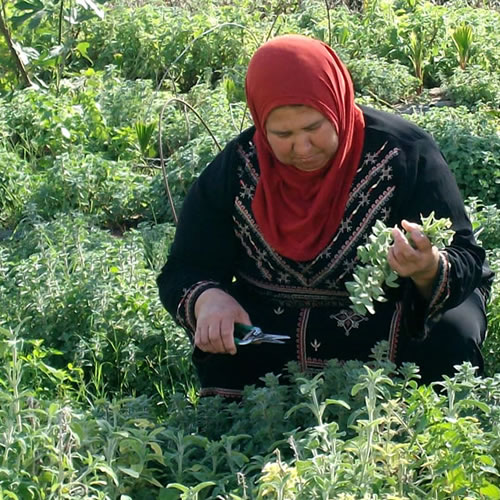Feeding the world, naturally
Our globalized world is facing multiple ‘crises’—economic, water, climate, biodiversity and food. The different global agendas and responses to each of these issues are often competing and conflicting. Yet they are all interconnected and it will not be possible to solve one of them without addressing the others. One of the greatest challenges we face is how to feed a growing population while sustaining fresh water supplies, maintaining biodiversity and combating climate change.

Photo: IUCN / Rania Faouri
One billion people are undernourished in the world today; one million more than last year and one sixth of humanity. Food insecurity is a global concern. But insufficient attention is being paid to what underpins all of our food systems—biodiversity and ecosystem services such as soil formation, water supply, pollination, disease control and resilience to extreme weather.
Forests, rivers, wetlands and the sea are key sources of food, especially for the rural poor who depend most directly on them. For millions, nature is food security in times of food shortages or as critical nutritional supplements to the staple diet. The quality and quantity of this ‘free’ food supply is hard to replace and yet is rarely accounted for. Our current model of market-driven food production is leaving millions of people hungry and at the mercy of fluctuating food prices. The food crisis has been long coming and has many complex drivers. If we are serious about achieving sustainable food security we need to more sustainably manage our natural resources.
Absent for too long, the conservation community has a role to play in the agriculture and food security debates and in exploring how sound ecosystem management can help feed the world. We need to see greater collaboration between conservationists and the agriculture, fisheries and development sectors to ensure more sustainable and equitable food systems.
With this month’s ‘Nature and Food’ focus we look at some of the many links between biodiversity, ecosystems and food.
